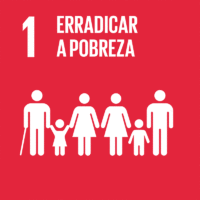Ciência-IUL
Publicações
Descrição Detalhada da Publicação
Título Revista
Behaviour and Information Technology
Ano (publicação definitiva)
2022
Língua
Inglês
País
Reino Unido
Mais Informação
Web of Science®
Scopus
Google Scholar
Abstract/Resumo
Older adults are often stereotyped as having less technological ability than younger age groups. As a result, older individuals may avoid using technology due to stereotype threat, the fear of confirming negative stereotypes about their social group. The present research examined the role of stereotype threat within the Technology Acceptance Model (TAM). Across two studies, experiencing stereotype threat in the technological domain was indirectly associated with lower levels of technology use among older adults. This was found for subjective (Study 1) and objective measures (Study 2) of use behaviour, and for technology use in general (Study 1) and computer use in particular (Study 2). In line with the predictions of the Technology Acceptance Model, this relationship was mediated by anxiety, perceived ease of use, perceived usefulness, and behavioural intention. Specifically, stereotype threat was negatively associated with perceived ease of use (Studies 1 and 2) and anxiety mediated this relationship (Study 2). These findings suggest that older adults underuse technology due to the threat of confirming ageist stereotypes targeting their age group. Stereotype threat may thus be an important barrier to technology acceptance and usage in late adulthood.
Agradecimentos/Acknowledgements
--
Palavras-chave
Ageing,Ageism,Stereotype threat,Technology acceptance model,Structural equation modelling
Classificação Fields of Science and Technology
- Ciências da Computação e da Informação - Ciências Naturais
- Psicologia - Ciências Sociais
- Outras Ciências Sociais - Ciências Sociais
- Outras Humanidades - Humanidades
Registos de financiamentos
| Referência de financiamento | Entidade Financiadora |
|---|---|
| PD/BD/128322/2017 | Fundação para a Ciência e a Tecnologia |
| UIDB/03127/2020 | Fundação para a Ciência e a Tecnologia |
| UIDB/03125/2020 | Fundação para a Ciência e a Tecnologia |
| 321482 | Comissão Europeia321482 |
Contribuições para os Objetivos do Desenvolvimento Sustentável das Nações Unidas
Com o objetivo de aumentar a investigação direcionada para o cumprimento dos Objetivos do Desenvolvimento Sustentável para 2030 das Nações Unidas, é disponibilizada no Ciência-IUL a possibilidade de associação, quando aplicável, dos artigos científicos aos Objetivos do Desenvolvimento Sustentável. Estes são os Objetivos do Desenvolvimento Sustentável identificados pelo(s) autor(es) para esta publicação. Para uma informação detalhada dos Objetivos do Desenvolvimento Sustentável, clique aqui.

 English
English



